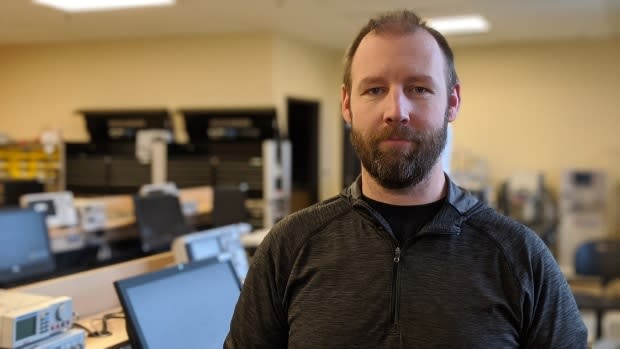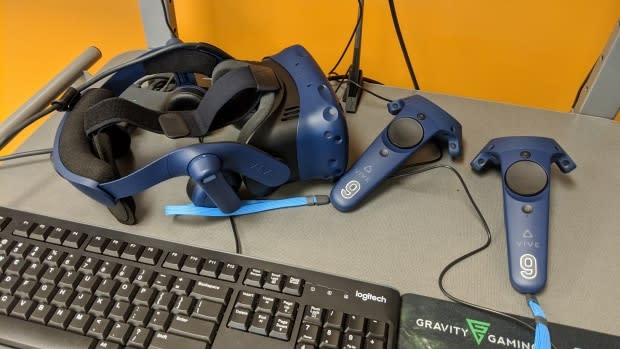St. Clair College biomedical program incorporates virtual reality
Students in the biomedical engineering technology program at St. Clair College are trying their hands on new virtual reality (VR) technology — which the college says is the first of its kind in Canada.
Program coordinator and professor James Linton says it makes learning more accessible and promotes student engagement.
"We're making them learn without them knowing it," Linton said.
"Previously, I would teach with slides, showing the anatomy of a skeleton and saying 'here's a tibia, the fibula.' Now they can actually take it apart and they can add muscle to it. They can see what it connects to," he said.
The technology also allows students to take a tour around the world.
"They can go look at a hospital in Peru. They can tour a biomed shop in China and they can see the differences," he said.

Linton said bringing VR into the classroom is "much more interesting" to his students.
"It allows us to help a different section of learners, because some people just can't learn from me talking or from watching a slide," he said.
Learning without knowing it
Matt Logan, a third year student in the program, said he finds the technology fun and easy to use.
"Within 10 minutes, I was very easily working through and understanding all the controls and actually being able to go through all the different systems," said Logan.
"It adds a different perspective to learning, not only from lectures where we sit and learn from our professors, but in labs as well, where we will be able to work on the different devices or some devices that we might not actually have here," he added.

The mobile VR technology was purchased in September, according to Linton, and set up just before Christmas.
"I remember being a student and I remember energy drinks being the only reason I was awake and now my students are so excited to come in. They want to come in on their off hours to play with it," said Linton. "All the apps we have, they're all very educational. So, they're playing but they're learning."
It's fun and easy to use, says student
He explained that VR technology is immersive which can help with students who are struggling in his class.
"What I've noticed is a lot of our students that weren't doing so well ... [they] are drawn to this. So already, I've got their attention. And it's giving them a new medium to enjoy and actually want to come to class."

"I think it's a great step forward into allowing everybody to have a greater understanding and possibilities with their careers and the knowledge that they can attain while at school," Logan said.
Linton said VR will also help prepare students for their future in the field.
"When we train for something so many times, when it actually happens, you hope you will react that way, but with VR, we can immerse them and put them in that situation so that we know what will happen."


